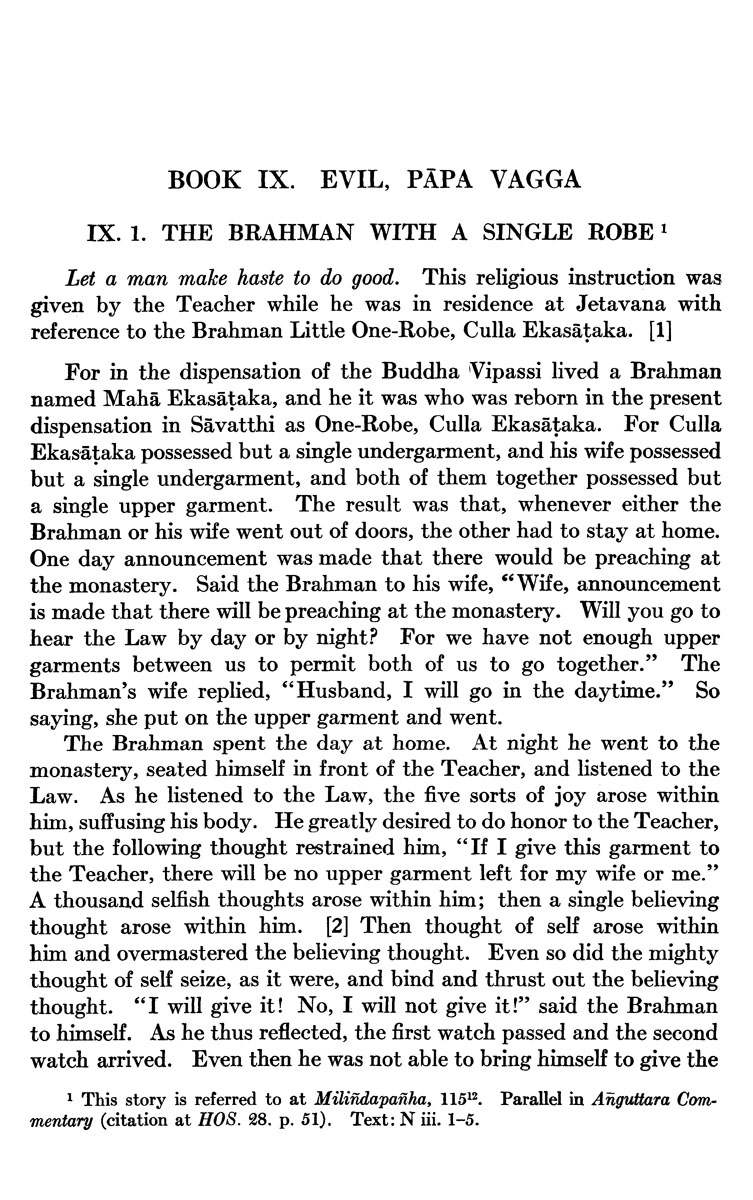BOOK IX. EVIL, PAPA VAGGA
IX. 1. THE BRAHMAN WITH A SINGLE ROBE ^
Let a man make haste to do good. This religious instruction was
given by the Teacher while he was in residence at Jetavana with
reference to the Brahman Little One-Robe, Culla Ekasataka. [1]
For in the dispensation of the Buddha Vipassi lived a Brahman
named Maha Ekasataka, and he it was who was reborn in the present
dispensation in Savatthi as One-Robe, CuUa Ekasataka. For Culla
Ekasataka possessed but a single undergarment, and his wife possessed
but a single undergarment, and both of them together possessed but
a single upper garment. The result was that, whenever either the
Brahman or his wife went out of doors, the other had to stay at home.
One day announcement was made that there would be preaching at
the monastery. Said the Brahman to his wife, **Wife, announcement
is made that there will be preaching at the monastery. Will you go to
hear the Law by day or by night? For we have not enough upper
garments between us to permit both of us to go together." The
Brahman's wife replied, "Husband, I will go in the daytime." So
saying, she put on the upper garment and went.
The Brahman spent the day at home. At night he went to the
monastery, seated himself in front of the Teacher, and listened to the
Law. As he listened to the Law, the five sorts of joy arose within
him, suffusing his body. He greatly desired to do honor to the Teacher,
but the following thought restrained him, "If I give this garment to
the Teacher, there will be no upper garment left for my wife or me."
A thousand selfish thoughts arose within him; then a single believing
thought arose within him. [2] Then thought of self arose within
him and overmastered the believing thought. Even so did the mighty
thought of self seize, as it were, and bind and thrust out the believing
thought. "I will give it! No, I will not give it!" said the Brahman
to himself. As he thus reflected, the first watch passed and the second
watch arrived. Even then he was not able to bring himself to give the
^ This story is referred to at Milindapanha, \\5^'^, Parallel in Anguttara Com¬
mentary (citation at HOS. 28. p. 51). Text: N iii. 1-5.
|








